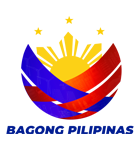MANILA — The Marcos administration is looking at replenishing the initially approved People’s Survival Fund (PSF) with the help of various donors and multilateral financing institutions, the country’s finance chief said in an interview.
The People’s Survival Fund was established under Republic Act No. 10174 to finance adaptation programs and projects of local government units (LGUs) and accredited local and community organizations.
In an interview at the Philippine Pavilion in Dubai Expo in United Arab Emirates, Finance Secretary Benjamin Diokno said that the Marcos administration was able to move close to P600 million grants to local governments for climate adaptation and resiliency projects.
“I think the idea is maybe really to replenish that fund from donors. And I think there are some possible donors that we’ve talked to,” Diokno said in the interview, noting that the fund that was set up 11 years ago but has not moved for a long time.
Currently, he said, the key issue being discussed and negotiated by finance ministers is how to increase and scale up the fund itself, or the $100 billion annual loss and damage fund.
While there are available donors for the loss and damage fund with the help of multilateral development banks (MDBs), he said every country must show prudence and help themselves in terms of fiscal discipline and organization.
“But my message is clear: I said it is the responsibility of every country, every community, every individual to do their share in making sure that planet Earth will be around for many, many years to come, right? And so we’re doing our job,” Diokno said.
“I said ‘we’, first of all, it’s our responsibility. When President Marcos came to office to prepare that medium term fiscal framework because coming from the pandemic, that fiscal house is quite shaky and so we will able to put it in order and it is the responsibility of every country to put the fiscal house in order first.”
Among the multilateral financing institutions that could aid the Philippines and other countries include the Asian Development Bank (ADB), which greatly assisted the Philippines during the COVID-19 pandemic.
And in terms of harnessing financing coalition for accelerating climate finance and gender responsive nature-based climate finance, Diokno said these issues are in line with the Sustainable Development Goals (SDGs).
“Basically, the message is very clear. It’s the…. We can’t forget the SDGs, right? It’s “no one should be left behind” especially the women and the girls, and the underprivileged should part of this effort to preserve planet Earth,” he said.
And in scaling up government resources, the finance chief said that the government cannot do it alone and it needs public-private participation and that is what exactly the Marcos administration did.
President Ferdinand R. Marcos Jr. signed the Public Private Partnership Act on Tuesdag, which, Diokno said, is very important.
He also said that in terms of climate finance, the Philippines is doing okay.
Asked about what to bring home from the country’s COP28 participation, he said, “That’s the President’s mandate, at least some participation in the loss and damage fund and I think we have a strong message to the whole community.”
“You really have to have your fiscal house in order instead of looking at what [you] can get from other countries you have to help yourself and for me that’s my message.”
But countries have to overcome hurdles in managing and using additional climate financing, he said, noting that it’s easier to raise the money but distributing them will be the next major problem.
“Assuming you have a hundred billion US dollars every year how do you allocate them among the 200 countries? To me, that’s a major challenge. And that’s the job of the board, I think,” he said. (PND)












